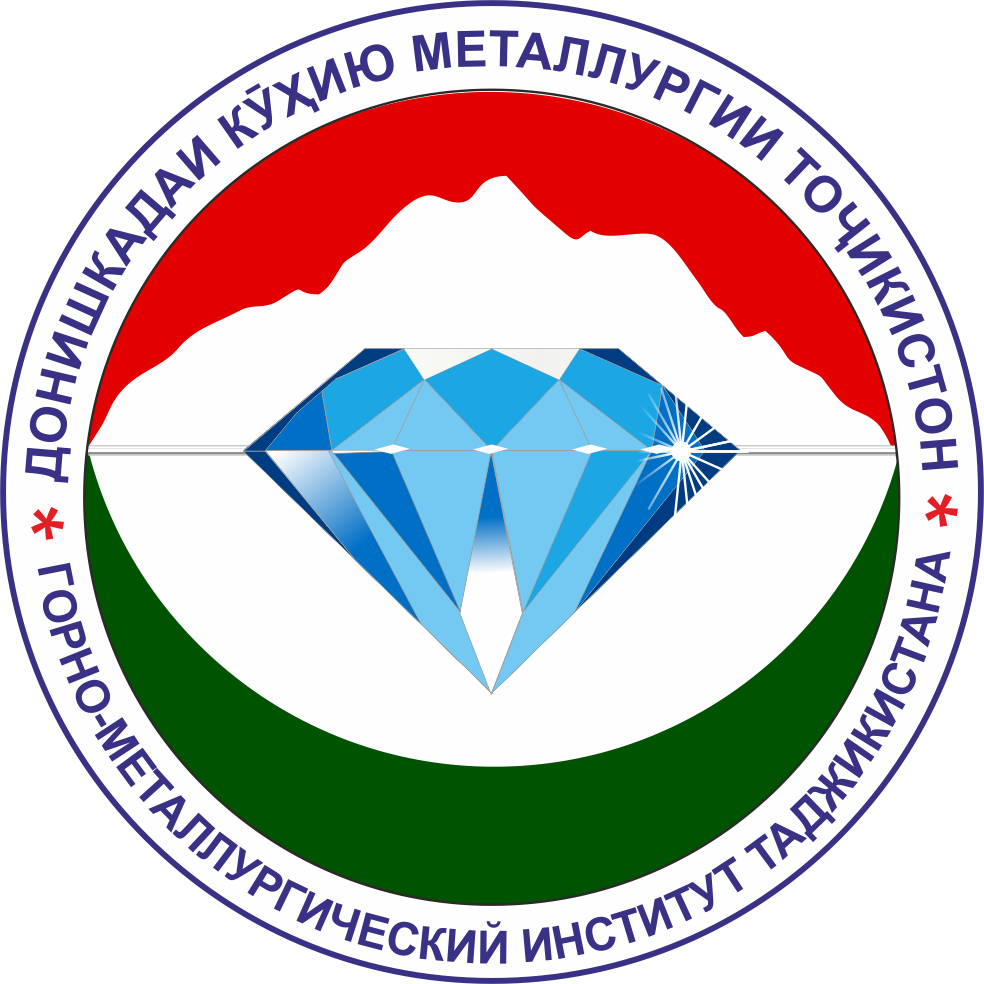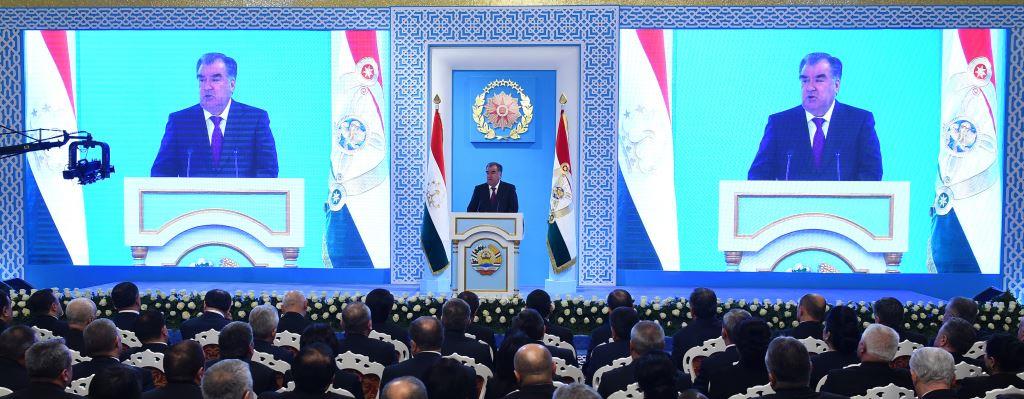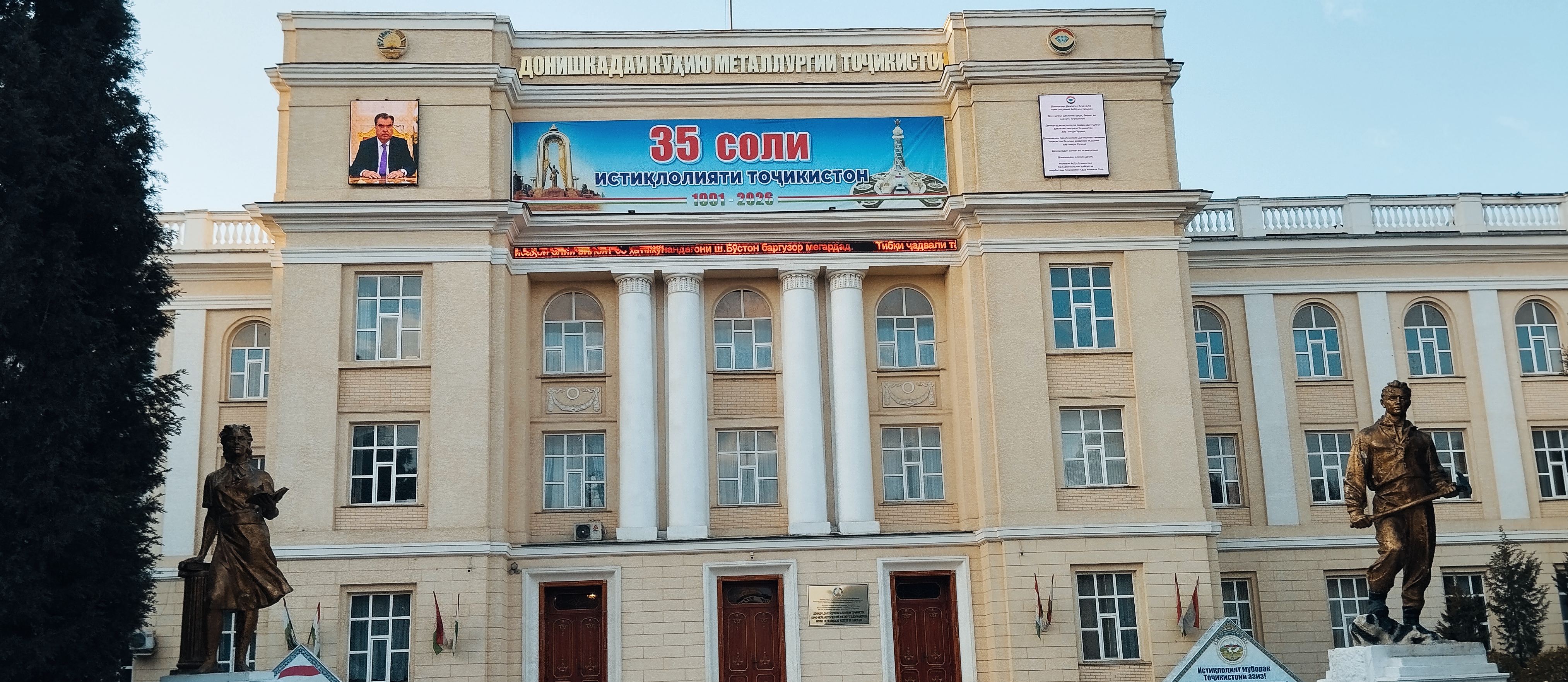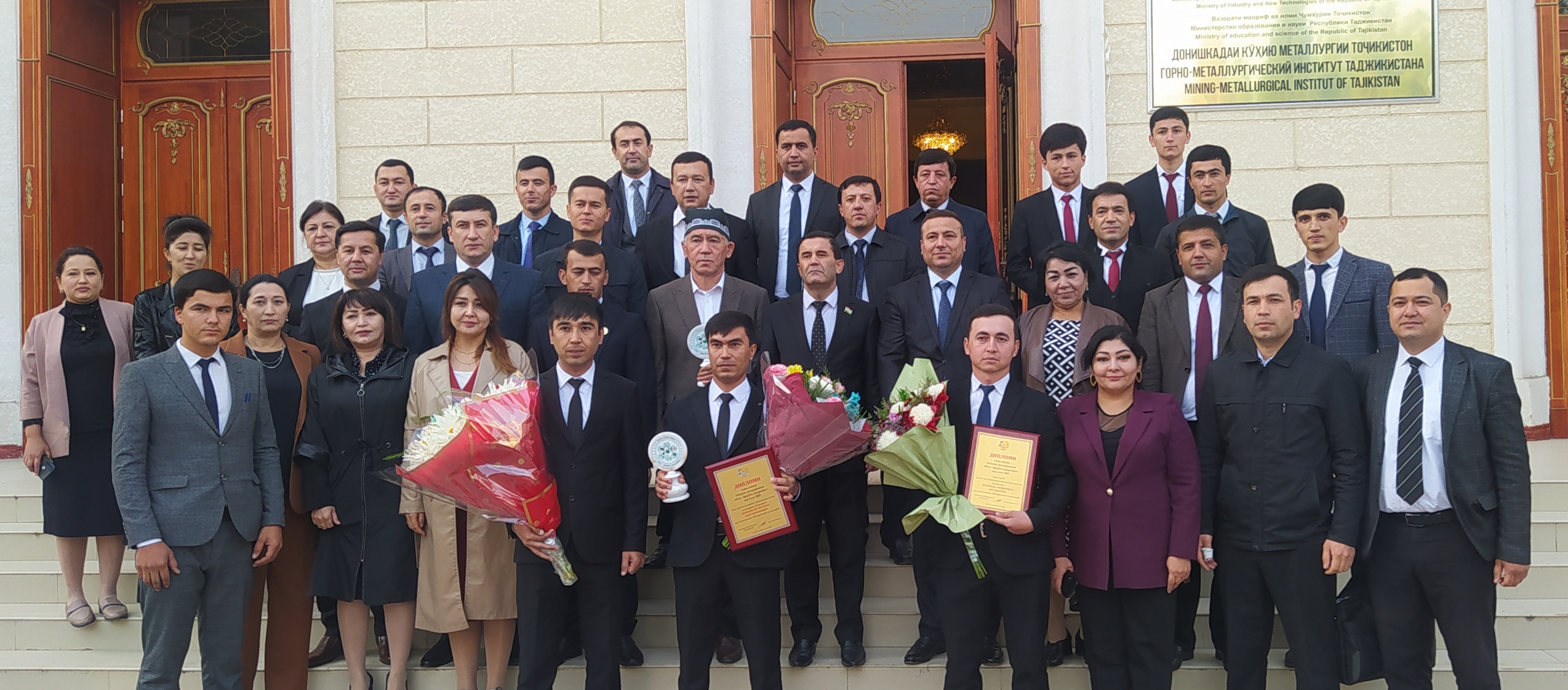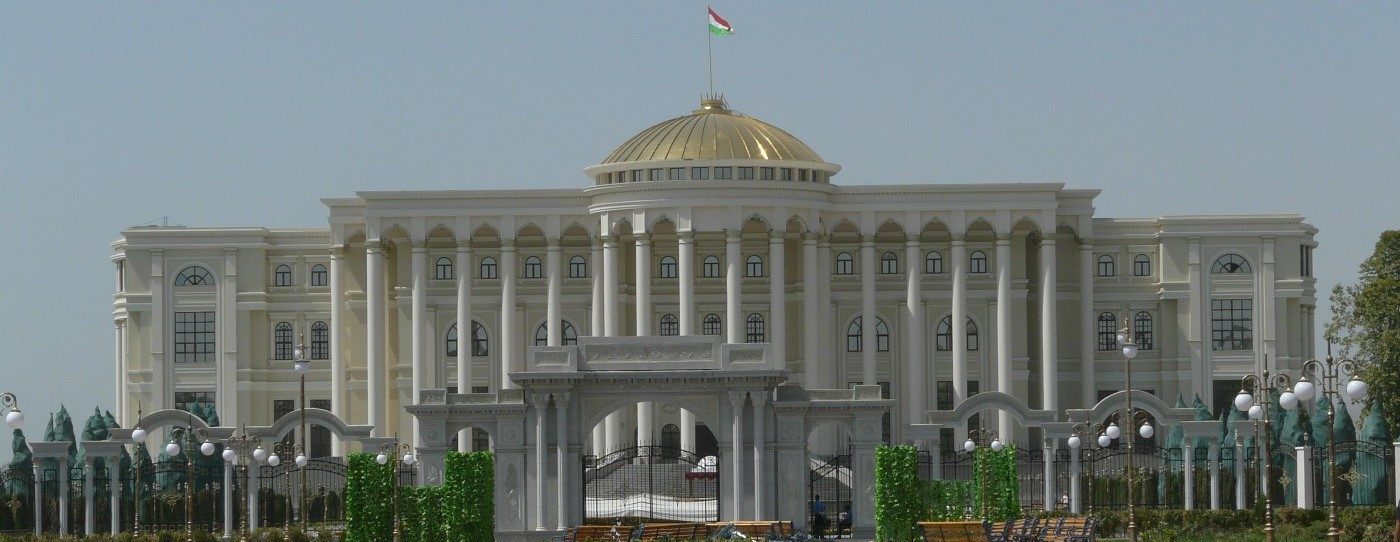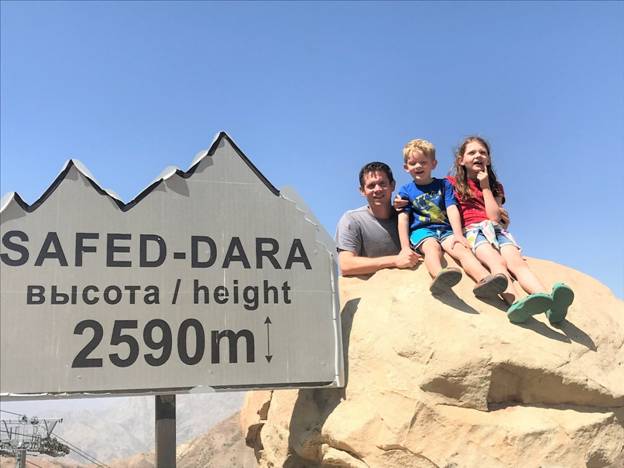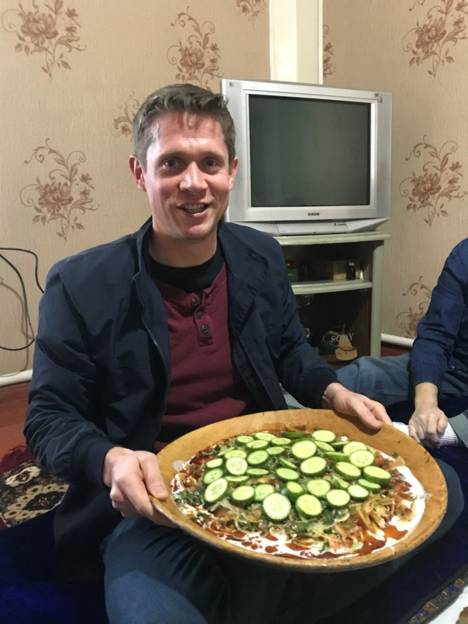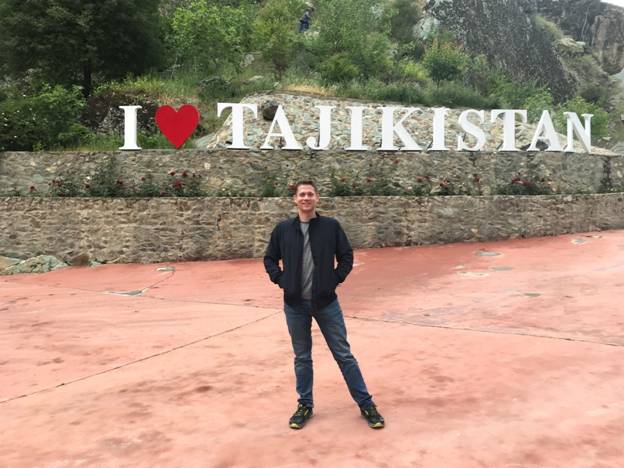DUSHANBE, 03.04.2019. (NIAT Khovar) – It is the second year that has been declared the year of tourism in Tajikistan. Understanding the importance of the tourism industry to the country’s economic development, President Emomali Rahmon had declared 2018 the Year of Tourism and Folk Crafts. That year, the influx of tourists increased.
Nearly 1.2 million tourists visited Tajikistan in 2018. That’s over two and a half times higher than in 2017, according to the Committee for Tourism Development.
In order to enforce the promotion of tourism and improve the sector’s infrastructure, the government adopted the Tourism Development Strategy to 2030 and declared 2019-2020 the Period of Rural Development, Tourism and Folk Crafts.
Tajikistan has a vast tourism potential, says Jeff Ridenour, a diplomat at the US Embassy in Dushanbe, who shares his impressions of the country and its tourism industry with Shoguna Sobir, the editor of the English-language edition of NIAT Khovar.
“I was really happy to hear last year that President Emomali Rahmon declared it the Year of Tourism Development and Folk Crafts. There is so much potential for all types of tourism here, but especially for tourists that love the outdoors,” says Ridenour.
As about 93% of Tajikistan’s territory consists of mountains, its nature is perfect for mountaineers and rock climbers. There are three peaks with over 7,000-meter elevation. The 7,495-meter (24,590 ft) Ismoil Somoni Peak (formerly Communism Peak) is the highest point of the Pamir mountains and was the highest peak in the former Soviet Union. Peak Korzhenevskaya is 7,105 meters (23,310 ft) and Ibn Sina Peak (formerly Lenin Peak) is 7,134 meters (23,406 ft). These peaks attract a number of tourists that travel specifically to summit them.
The diplomat himself spends nearly every weekend exploring the country on his mountain bike.
“I love the mountains and the ruggedness. There is so much natural beauty here and so many things to do. I would love to be able to not have to work and come here for a couple months and just explore,” he says.
“I have a special place in my heart for the Rasht Valley. It’s different. It’s beautiful. I would recommend visiting the Rasht Valley and the austere colorful rocky mountains on the way from Khujand to Isfara. Sarazm is also very beautiful,” says Ridenour.
Before he was assigned to the post in Dushanbe, Ridenour did not know much about the country. Once he arrived, what truly surprised him was most Tajiks’ level of affinity for hospitality.
“I’ve travelled all over the world. I’ve lived in India, Honduras, Italy, South America, but I was so surprised at how kind and hospitable people are here. I’m constantly invited to people’s homes,” says Ridenour.
“Truly, I don’t think I’ve been to a country that has a greater affinity for hospitality. This identity around hospitality is beautiful,” he adds.
However, that which can attract tourists and make their stay in Tajikistan more pleasant, according to Ridenour, can also act as a kind of an obstacle to the development of the tourism industry. It is what Tajiks call mehmonnavozi – the generous reception, accommodation and entertainment of guests, visitors, and even strangers.
While the Tajik hospitality can please tourists, it can be financially detrimental to Tajiks.
“What is the difference between a residing foreigner, a tourist and a guest?” asks Ridenour, pointing to the fact that Tajiks tend to refer to all by the word mehmon.
Although he has been residing in Tajikistan for nearly three years and speaks the language, with amusement he notes that he is still referred to as a mehmon, a Tajik word which means guest.
The warm Tajik hospitality doesn’t just extend to house invites for meals or paying for shared meals out. Tajiks also love gift giving. Salespeople in bazaars and shops like to delight foreigners and tourists with small presents or souvenirs.
“I’ve been wanting to be able to pay for a meal out with a friend. But for many Tajiks, it’s so hard to accept money from mehmons,” says Ridenour, emphasizing that tourists are happy to pay.
“It’s so different from countries where everyone is trying to give much higher prices to foreigners. It’s the opposite here. They give you things for free and you must insist to pay for them!” notes Ridenour laughing, adding that naturally, this generosity pleases tourists.
“I want the tourism industry to be strong in Tajikistan. That would help the economic development of the country,” he says.
“The government has done things to allow for fewer taxes for tourism agencies and operation agencies in order to increase investment in tourism. It’s important,” he adds.
Although the government has been putting effort into improving the industry by renovating and building new roads to tourist destinations, increasing the number of hotels and restaurants, organizing various events throughout the year, and making travelling to Tajikistan more convenient by implementing the e-visa system, there are still issues that need to be worked on in order to develop the tourism industry.
“One issue is better access to hotels and bathrooms. The Committee for Tourism Development is working on this. There are also few flight options and they are expensive. The other issue is internet. It’s so expensive and isn’t fast,” notes Ridenour, adding that expensive internet can serve as a hindrance for attracting investment and tourism.
“International companies that want to invest need to have solid infrastructure, including internet connectivity and broadband speeds. The president did mention making internet faster and cheaper in his annual address,” says Ridenour.
The diplomat recommends visiting Tajikistan to his friends and family members, and they have followed his recommendation. His parents have spent time here, so has his friend, who spent 30 days riding his bike throughout Badakhshon.
“I’m so lucky that I’m here. This has been a wonderful two and a half years. This has been my favorite posting. I will be going to Washington, DC soon and I don’t know what I will do without the beautiful mountains everywhere,” says Ridenour with a bit of sadness.
Jeff Ridenour is a University of Washington graduate from Seattle, WA. He lives in Dushanbe with his wife and two children.
